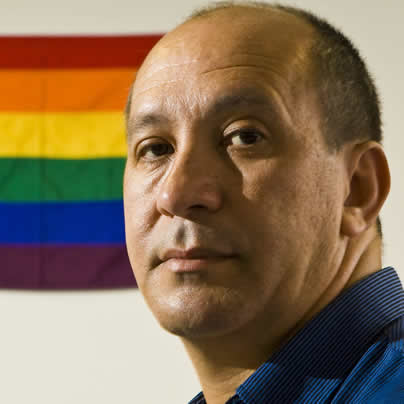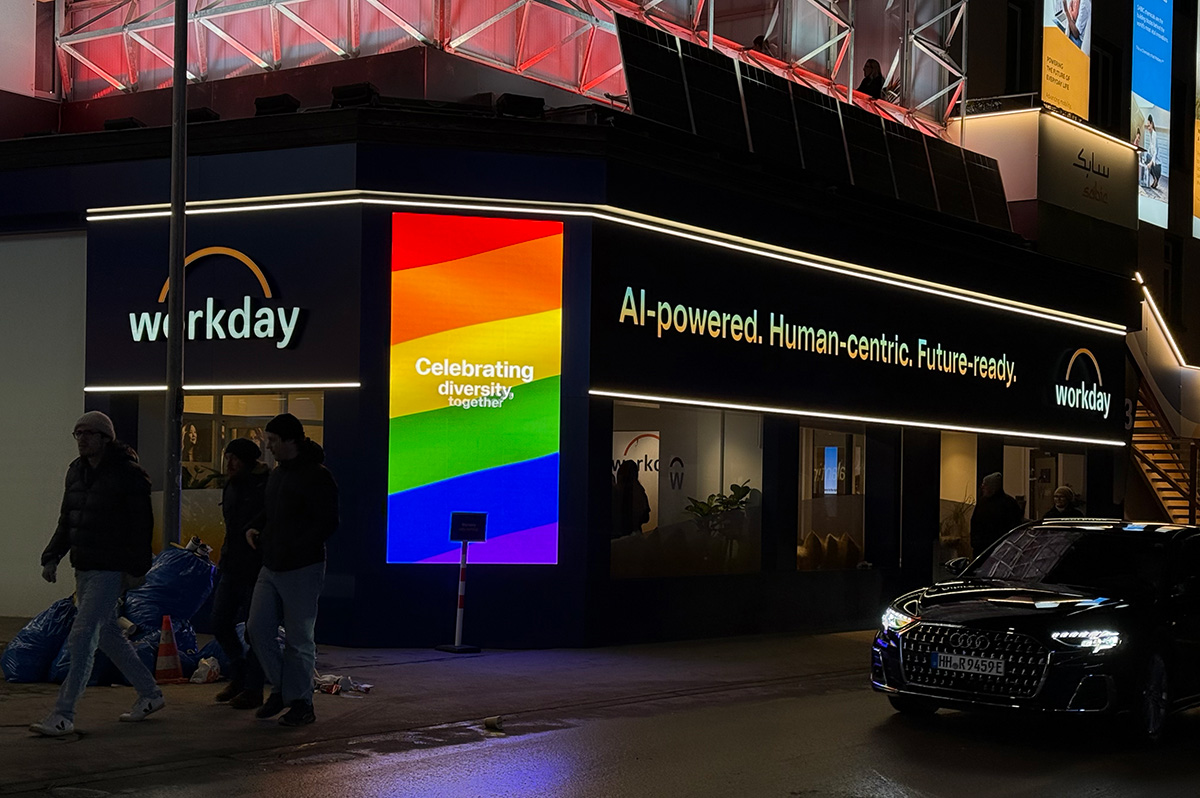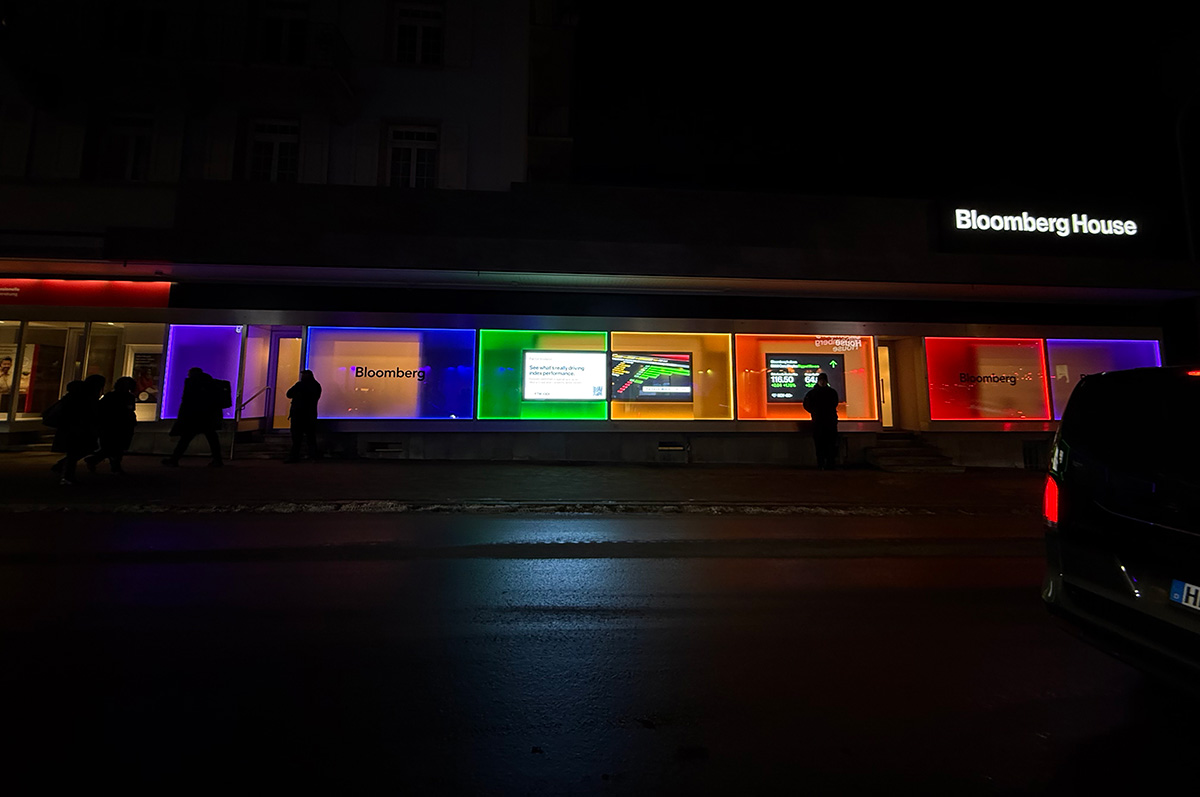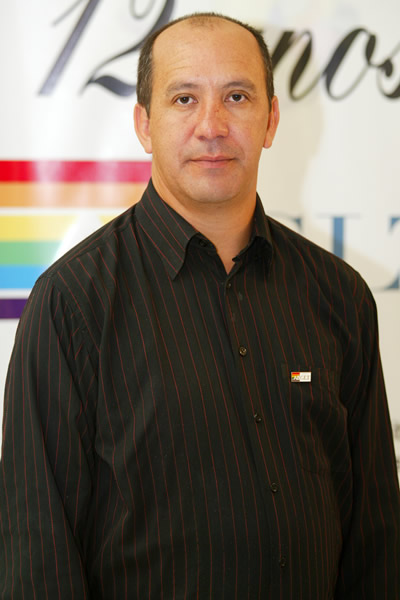World
Brazil’s most populous state to allow same-sex marriage
Couples in São Paulo can get marriage licenses in 60 days

A São Paulo court on Thursday ordered notaries to begin offering marriage licenses to same-sex couples without a judge’s approval.
The decision, which will take effect in Brazil’s most populous state in 60 days, comes after the Brazilian Supreme Federal Court ruled in May 2011 that gays and lesbians can enter into civil unions. A São Paulo judge in June 2011 ruled two men could convert their civil union into a marriage — 206 of these unions have been converted into marriages in the state.
Alagoas in January became the first Brazilian state to extend marriage to same-sex couples without judicial approval, while Bahia on the country’s northeast coast late last month followed suit. Notaries in Rio Grande do Sul and the Federal District that includes the Brazilian capital of Brasilia have also issued marriage licenses to gays and lesbians.
The Brazilian government announced in 2003 it would recognize same-sex unions legally performed outside the country for immigration purposes. Authorities in 2008 simplified these regulations.
“It is a very important decision,” gay Brazilian Congressman Jean Wyllys told the Washington Blade. “And like the Constitution says, in its Article 226, that the state should facilitate the conversation of stable unions into marriage and it also says people are equal under the law, many same-sex partners demanded this in the court. What the judges are doing is complying with the Constitution, recognizing the rights of same-sex partners to enter into civil marriage.”
In spite of the Brazilian Supreme Federal Court’s 2011 decision, Rio de Janeiro and many other states have yet to implement it. Wyllys has introduced a proposal that would amend the Brazilian Constitution to recognize same-sex civil marriage throughout the country. A bill that would allow gays and lesbians to tie the knot has languished in Congress since the mid-1990s.
“Justice is doing what should have already been done in the Congress and it deserves our applause,” Wyllys said. “The lack of a bill that ends this unjust discrimination, violation of the Federal Constitution and all the international human rights treaties, has left many partners to seek justice. Justice is doing its job well. Those of us who are missing are the lawmakers and the federal government that remains deaf to the call of millions of people who only want to be equal under the law.”
LGBT activist Felipe Pasqualotto shared Wyllys’ criticisms of the Brazilian government’s response to same-sex marriage and other issues.
“Even though São Paulo is just following the Supreme Court decision, it is a big step for Brazil considering we have been quite silent regarding human rights, especially gay [issues,]” he told the Blade.
The São Paulo ruling comes slightly more than a week after the Uruguay House of Representatives overwhelmingly approved a bill that would allow gays and lesbians to legally marry in the South American country. Same-sex couples have been able to tie the knot in neighboring Argentina and Mexico City since 2010.
The Mexican Supreme Court on Dec. 5 unanimously struck down a law in the state of Oaxaca that defined marriage as between a man and a woman. A Colombian Senate committee on the same day approved a measure that would legalize same-sex marriage. (The country’s highest court ruled in June 2011 that gays and lesbians will be able to formalize their relationships in two years if lawmakers don’t tackle the issue.)
Lawyer Alder Martins told the Blade he believes internal Brazilian politics continue to play more of a role in the expansion of legal recognition to same-sex couples than recent developments in other Latin American countries.
“I don’t believe recent developments in Mexico, Colombia and Uruguay have influenced this process,” Toni Reis, president of the Brazilian Association of Gays, Lesbians and Transgenders (ABGLT in Portuguese) added. “It’s a question of implementing Brazilian law.”
Costa Rica to consider legal recognition for gay couples
Meanwhile, the Costa Rican government announced on Monday it supports the extension of limited legal recognition of same-sex couples in the Central American country.
President Laura Chinchilla Miranda opposes nuptials for gays and lesbians, but her government urged lawmakers in a Dec. 7 press release to consider once again a measure that would extend inheritance, hospital visitation and other rights to same-sex couples.
“We hope that the Congress will continue to move forward with the bill and discuss the merits of the case and once and for all fill this legal void,” the government said in a press release. “The government urges respect and tolerance during this discussion that will take place in the Congress, the corresponding body which will take up this decision. Similarly it will respect the position of each deputy on this issue.”
The country’s highest court in 2010 struck down a referendum that sought to define marriage as between a man and a woman.
Lawmakers who have repeatedly postponed debate on extending legal rights to same-sex couples are scheduled to potentially consider the proposal on April 30. The country’s Roman Catholic church and other religious leaders have spoken out against any attempt to do so.
Francisco Madrigal Ballestero of the Center for the Investigation and Promotion of Human Rights in Central America (CIPAC,) described the measure to the Blade earlier this week as “a project that was born partly out of fear.” He further categorized it as “an administrative exit to recognize unions with certain aggravating circumstances.”
“It is not either marriage or civil union, it is a legal figure type contract that gives rights to two people to live together,” Madrigal said. “We believe that this project does not solve the problem of citizenship that we have as LGBT populations, and it is for this reason that this project is not supported by the majority of organizations who work on human rights and sexual diversity.”
Madrigal also pointed out “we don’t see a quick exit” on the issue because the Costa Rican Constitutional Court has said it is the responsibility of the country’s Congress to decide the issue. “The Inter-American Commission on Human Rights and the Inter-American Court could choose to take this particular Costa Rican case,” he said. “We are aware above all the commission, like the court, will take its time to resolve it.”
A CIPAC poll earlier this year found 67 percent of LGBT Costa Ricans support civil unions, compared to only 22 percent who back the president’s proposal and 11 percent who endorse marriage rights for same-sex couples.
“From the people it’s no big deal,” José Chaves, general manager of Gay Tours that operates tours and other activities for gay visitors to Manuel Antonio National Park and other parts of the country, told the Blade. “We are not having manifestations of people in the streets saying like, ‘no, that should not be like that.’ It’s more like ‘of course, let the gay people have the rights and it’s no problem.’ But on the other hand it’s all these people in the government and the church from inside of the government that’s working against it.”
Pete Thelen, a co-owner of the Windy City Times who owns two vacation homes near Manuel Antonio National Park, agreed.
“Most Costa Ricans are a live-and-let-live kind of people, so if it doesn’t affect them, they don’t really mind it,” he told the Blade. “If civil unions would go through, I don’t think it would be a problem for most Costa Ricans. We’ve never had any problems with our neighbors. They’ve accepted us.”
Honduras
Corte IDH reconoce a Thalía Rodríguez como familia social de Leonela Zelaya
Se construyeron una familia tras más de una década de convivencia

Por DORIS GONZÁLEZ * | TEGUCIGALPA, Honduras — En la sentencia del caso Leonela Zelaya y otra vs Honduras emitida por la Corte Interamericana de Derechos Humanos se estableció un hito jurisprudencial para las personas LGBTQ en Honduras, así como en la región en relación a las diversas conformaciones de familias existentes. La Corte IDH interpretó por primera vez el concepto de familia social, indicando que la construcción de familia no debe restringirse a la familia nuclear o a nociones tradicionales, bajo el entendido de que hay diferentes formas en las que se materializan los vínculos familiares.
Este análisis se trae a colación debido al contexto de discriminación, prejuicio y violencia que atravesamos las personas LGBTQ, el cual se puede manifestar incluso dentro de nuestras propias familias. Esta violencia se manifiesta a través de actos de odio como ser el desarraigo familiar, violencia física, psicológica, social, económica, expulsiones de los hogares, violaciones correctivas e incluso, culminando en muertes violentas. Esta violencia motivada por la orientación sexual, identidad y expresión de género de las personas imposibilita la convivencia familiar.
Ante esto, las personas LGBTQ construimos vínculos sociales fuera del vínculo familiar tradicional, los cuales a través de la convivencia, amistad, apoyo económico-social y construcción de vida en común constituyen familias, tal como ocurrió en este caso.
Tras el abandono de su familia biológica, Leonela Zelaya y Thalía Rodríguez construyeron una familia tras más de una década de convivencia, en los cuales se apoyaron mutuamente en diversas situaciones, viviendo como mujeres trans, portadoras de VIH, ejerciendo el trabajo sexual y en situación de pobreza, enfrentando constantes episodios de detenciones arbitrarias y violentas por parte de los órganos policiales.
Tras su asesinato, fue Thalía quien recogió el cuerpo de Leonela en la morgue de Tegucigalpa y quien gestionó el féretro a través de la Funeraria del Pueblo. Los servicios fúnebres de Leonela Zelaya fueron realizados en un bar por mujeres trans, trabajadoras sexuales, al cual no asistió ningún miembro de su familia biológica.
El asesinato de Leonela y la falta de esclarecimiento generaron a Thalía un sentimiento de inseguridad, frustración e impotencia. Por estas violaciones de derechos humanos, la Corte reconoció a Thalía Rodríguez, en calidad de familiar de Leonela, como víctima del caso, generando estándares aplicables a todas las personas LGBTQ.
A juicio de la Corte, esta situación lleva a que, en casos de muertes violentas de mujeres trans, las personas que integren las redes de apoyo de la persona fallecida puedan ser declaradas víctimas por la violación de sus derechos a la integridad psíquica o moral, siempre que se acredite la existencia de un vínculo estrecho con la víctima y una afectación a sus derechos, derivada, por ejemplo, de las gestiones realizadas para obtener justicia. Esta sentencia logra reconocer que las personas LGBTQ construimos familias sociales, familias elegidas, e indica que estas deben ser reconocidas y validadas.
* Abogada litigante del caso Leonela Zelaya y otra vs Honduras, Red Lésbica Cattrachas
Uganda
LGBTQ Ugandans targeted ahead of country’s elections
President Yoweri Museveni won 7th term in disputed Jan. 15 vote

Barely a week after Ugandan President Yoweri Museveni secured a 7th term in an election marred by state violence, intimidation, and allegations of fraud, the country’s queer community spoke about how the election environment impacted it.
The LGBTQ lobby groups who spoke with the Washington Blade noted that, besides government institutions’ failure to create a safe and inclusive environment for civic participation by all Ugandans, authorities weaponized the Anti-Homosexuality Act to silence dissent and discourage queer voter engagement.
The rights groups note that candidates aligned with Museveni’s ruling National Resistance Movement — including Parliament Speaker Anita Among — during the campaigns accused their rivals of “promoting homosexuality” to discredit them while wooing conservative voters.
Queer people and LGBTQ rights organizations as a result were largely excluded from the formal political processes for the election as voters, mobilizers, or civic actors due to fear of exposure, stigma, violence, and legal reprisals.
“This homophobic rhetoric fueled public hostility and emboldened vigilante violence, forcing many queer Ugandans into deeper hiding during the election period,” Uganda Minority Shelters Consortium Coordinator John Grace stated.
Some queer people had expressed an interest in running for local council seats, but none of them formally registered as candidates or campaigned openly because of safety concerns and local electoral bodies’ discriminatory vetting of candidates.
“UMSC documented at least three incidents of election-related violence or intimidation targeting LGBTQ+ individuals and activists,” Grace noted. “These included harassment, arbitrary detentions, extortions by state and non-state actors, digital cat-fishing, and threats of outing.”
Amid such a militarized and repressive election environment, Let’s Walk Uganda Executive Director Edward Mutebi noted queer-led and allied organizations engaged in the election process through restricted informal voter education, community discussions, and documenting human rights violations.
“Fear of backlash limited visibility and direct participation throughout the election cycle,” Mutebi said. “But despite the hostile environment of work, Let’s Walk Uganda was able to organize a successful transgender and gender diverse youth training on electoral security and safety.”
Museveni’s government escalated its repressive actions during the Jan. 15 elections by shutting down the internet and suspending nine civil society organizations, including Chapter Four Uganda and the National Coalition of Human Rights Defenders, for allegedly engaging in activities that are prejudicial to the security and laws of the country.
The suspension of the rights organizations remains in force, an action both Mutebi and Grace condemn. They say it prevents queer Ugandans from accessing urgent services from the affected groups.
“For the LGBTQ community, the impact has been immediate and deeply harmful. Many of the suspended organizations, like Chapter Four Uganda, were critical partners in providing legal representation, emergency response, and documentation of rights violations,” Grace said.
This has compelled UMSC and its other partners to handle increased caseloads with limited resources, while navigating heightened scrutiny and operational risk.
“The suspension has disrupted referral pathways, delayed urgent interventions, and weakened collective advocacy for marginalized groups and minority rights defenders, which calls for urgent international solidarity, flexible funding, and protection mechanisms to safeguard the work of grassroots organizations operating under threat,” Grace stated.
Mutebi warned that such repressive actions are tyrannical and are indicative of shrinking civic space, which undermines democratic accountability as the promotion and protection of human rights is ignored.
With Museveni, 81, extending his tenure at State House from a landslide win of 72 percent, UMSC and LWU consider a bleak future in the protection of rights for queer Ugandans and other minority groups.
“Without significant political and legal shifts, LGBTQ persons will face continued criminalization, reduced civic space, and heightened insecurity, making sustained advocacy and international solidarity more critical than ever,” Mutebi said. “ It is unimaginable how it feels to live in a country with no hope.”
Grace, however, affirmed the resistance by local queer lobby groups will continue through underground networks, regional solidarity, and digital organizing.
The duo noted that a win by Museveni’s main challenger and rapper, Bobi Wine, who only managed 24 percent of the total votes cast, could have enabled the opening up of civil space and human rights protections in Uganda.
Wine, for his part, spoke in favor of the respect for the rule of law and human rights during his campaign.
“While Bobi Wine’s past stance on LGBTQ rights was inconsistent, his recent shift toward more inclusive rhetoric and international engagement suggested a potential opening for dialogue,” Grace said. “A win might have created space for policy reform or at least reduced state-sponsored homophobia, though structural change would still require sustained pressure and coalition-building.”
Mutebi stated that a change in Uganda’s leadership to a youthful leader like Wine could have offered an opening, but not a guarantee for progress on inclusion and human rights. Mutebi added existing institutionalized and societal homophobia remain in place.
World
Companies participate in ‘Pride on the Promenade’ at World Economic Forum
GLAAD co-organized initiative

A dozen companies that are participating in the World Economic Forum on Wednesday lit up their venues on the Davos promenade in rainbow colors.
Amazon, Axios, Bloomberg, Circle, Cisco, Cloudflare, Edelman Trust House, Hub Culture, Salesforce, SAP, Snowflake, and Workday participated in the “Pride on the Promenade” that GLAAD, Open for Business, and the Partnership for Global LGBTIQ+ Equality organized. It is the fourth year the organizations have organized the initiative during the World Economic Forum.
The annual event is taking place this week in the Swiss ski resort town of Davos.
GLAAD CEO Sarah Kate Ellis on Wednesday moderated a panel in which Open for Business CEO Ken Janssens and Iris Bohnet, co-director of the Harvard Kennedy School’s Women and Public Policy Program, among others, participated. President Donald Trump earlier in the day spoke at the World Economic Forum.
“World leaders, corporate executives, and global media are discussing new ways to evolve inclusion and social issues, but leaders in those institutions and our community as a whole need to do more to support LGBTQ people globally,” said Ellis in a statement that GLAAD sent to the Washington Blade on Thursday. “At a time when decades-old alliances are being challenged, the importance of this visible show of solidarity at the largest convening of global decision makers cannot be understated. Inclusion remains a necessary business practice and companies that demonstrate shared values of family and freedom know this helps grow the bottom line.”





















